COS News
News

A new report from a group of Northeastern researchers explores across disciplines how biotech can ensure safe, sustainable life beyond Earth.
The key to international space cooperation is developments in biotechnology, Northeastern researchers say
News

The NeuroPRISM lab, led by assistant psychology professor Stephanie Noble, makes tools that pave the way for reliable and reproducible neuroimaging of the brain.
Precise maps of the brain’s deepest corners are made possible through tools developed by these Northeastern researchers
Showing 149 results in Biology
Northeastern’s COVID-19 Testing Is Identifying New Variants Faster Than Other Labs
When Northeastern began outlining its COVID-19 testing plan last spring, Jared Auclair, director of Northeastern’s testing lab, had a hunch: The university needed a monitoring system that could adapt to inevitable mutations of the virus in the future. As the pandemic unfolded, viral mutations were top-of-mind for Auclair, whose background in drug resistance in HIV […]

Alum Q&A: Vance Consalvo ’15
Vance Consalvo is a Dentist in New York. Vance was a Biology Major, Class of 2015. Why did you decide to study Biology at Northeastern? Is there a specific element of the program that you enjoyed in your time here? I knew the most efficient way to hit all the necessary pre-requisites for dental school […]
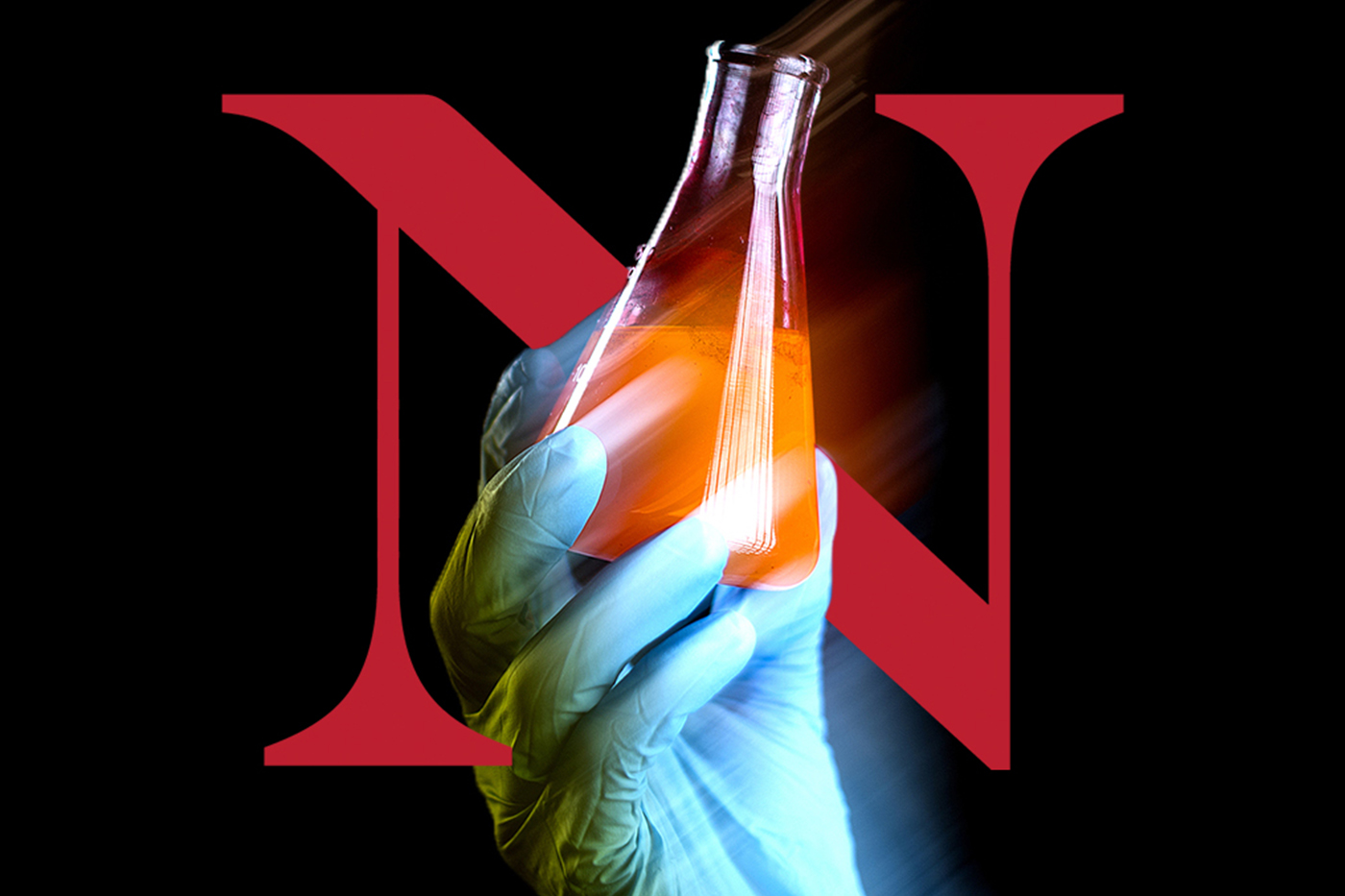
Four Northeastern Researchers Named to 2020 List of ‘Highly Cited Researchers’
Each year, the researchers most cited by their peers are recognized for their achievements in science. This year the College of Science has four faculty with the distinction.
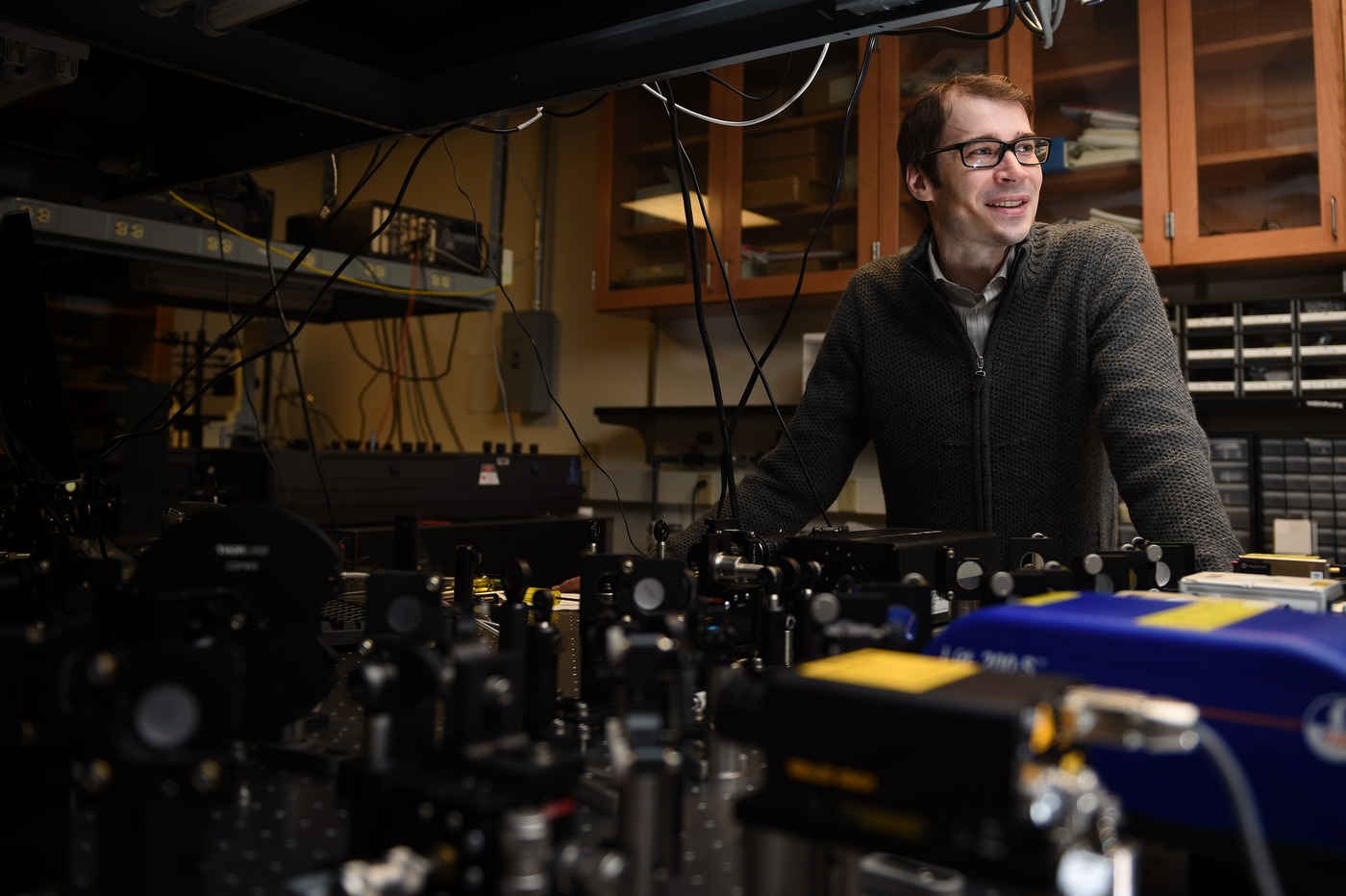
Cellaria Inc. Partners with Researchers at Northeastern University to Advance New Photomedicine Therapies for Key Cancers
Partnering with Cellaria, Northeastern's Spring lab has been awarded a grant of $3.2 M for cancer therapy research, based around Dr. Bryan Spring's focus on antibody-photosensitizers.
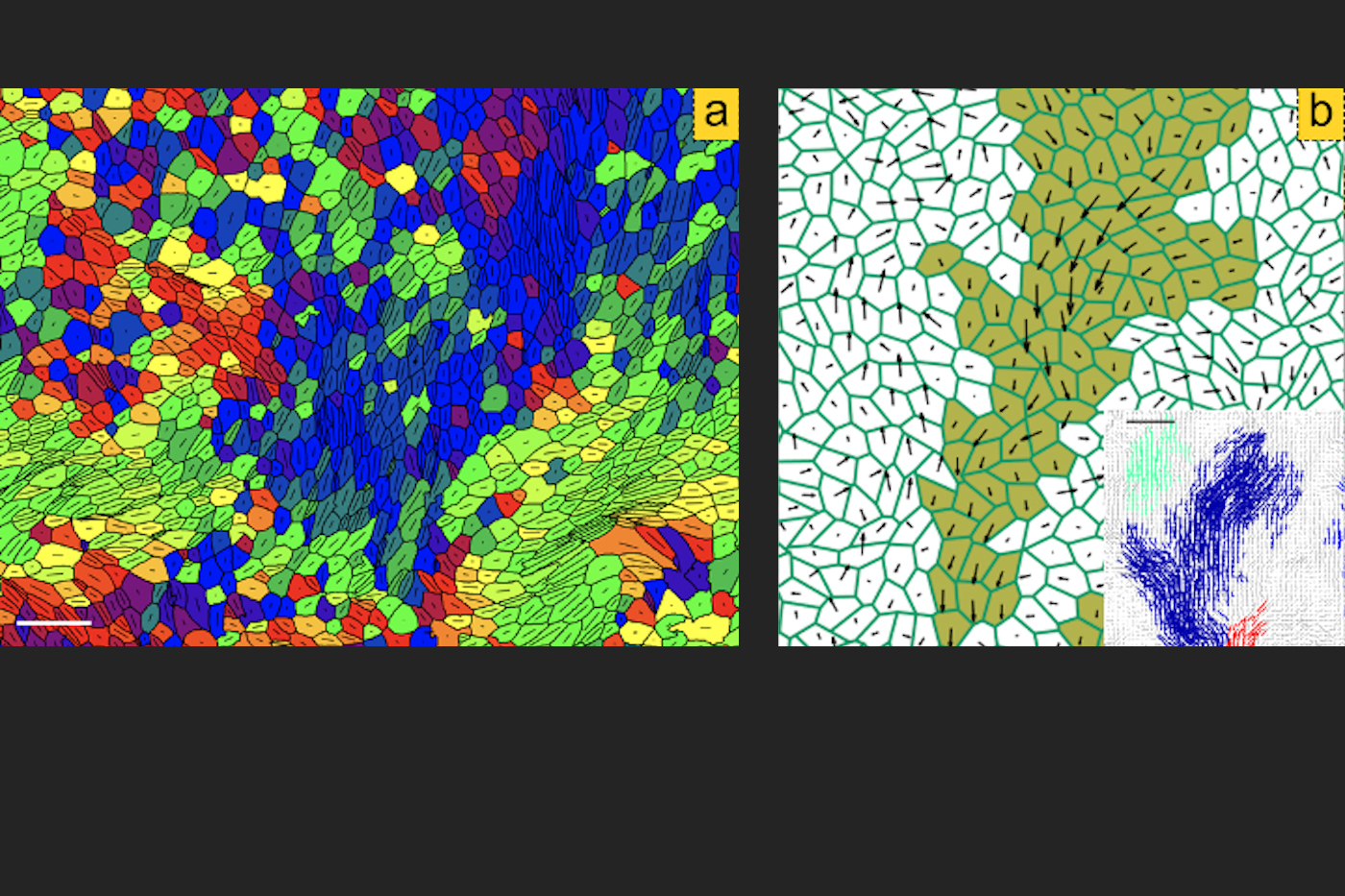
Getting Under Your Skin: How a Interdisciplinary Team of Scientists Came Together to Study Epithelial Cells
A duo of Northeastern physicists team up with Harvard biologists to accomplish something neither group could on their own. Find out how physics can revolutionize the biological sciences, and what it means for physics in return.
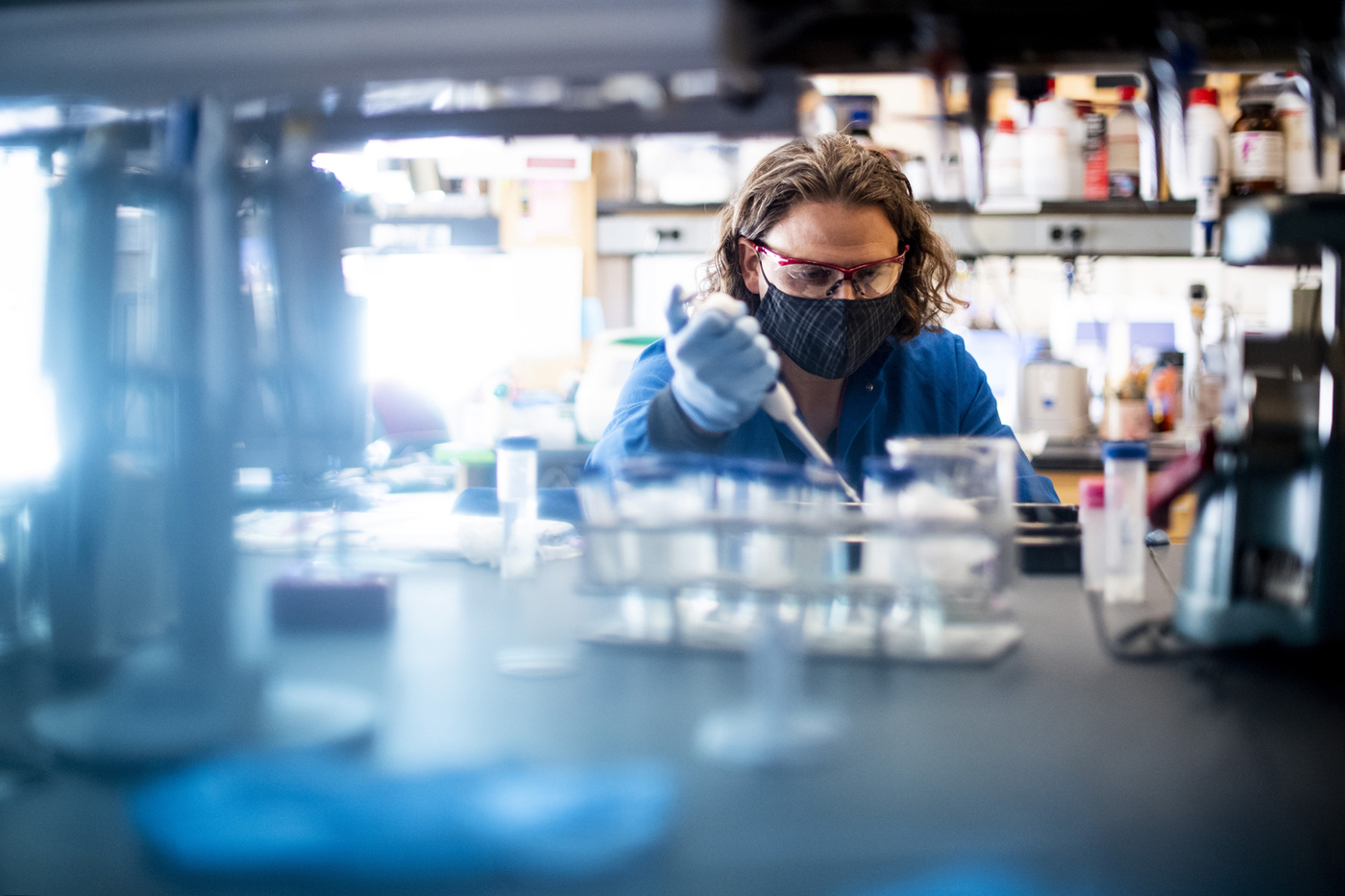
He’s Back in the Lab with His Salamanders
Working with axolotls, a regenerative Mexican salamander, has defined James Monaghan's adult life. But an international pandemic put a stop to his work.
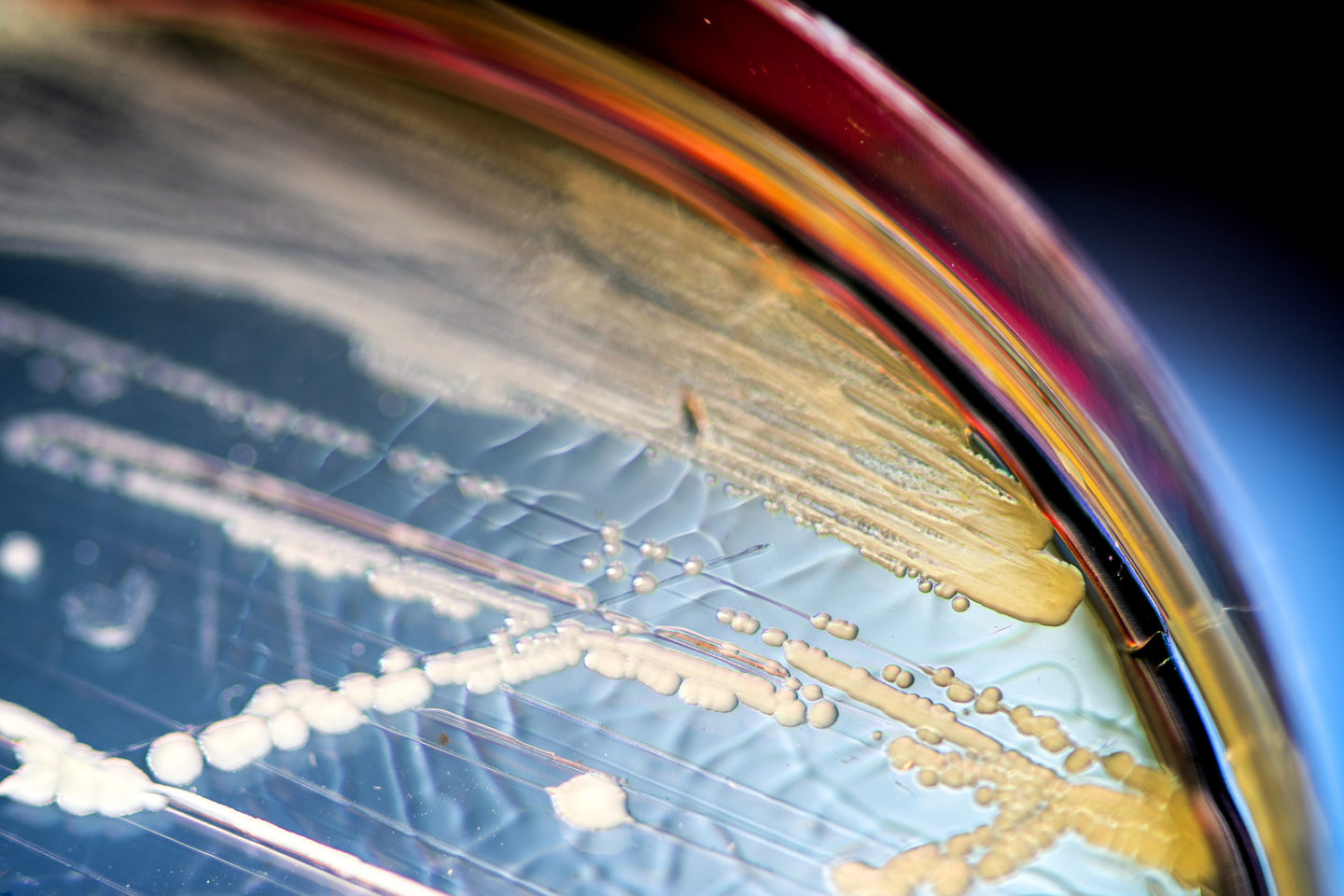
Intestinal Bacteria Could Give Doctors an Objective Test for Chronic Lyme Disease
Chronic Lyme disease is a relatively unknown to the general public, but horrific fact of life for many. A new way of identifying this mysterious syndrome doesn't involve any bulls-eye rashes, but your gut.
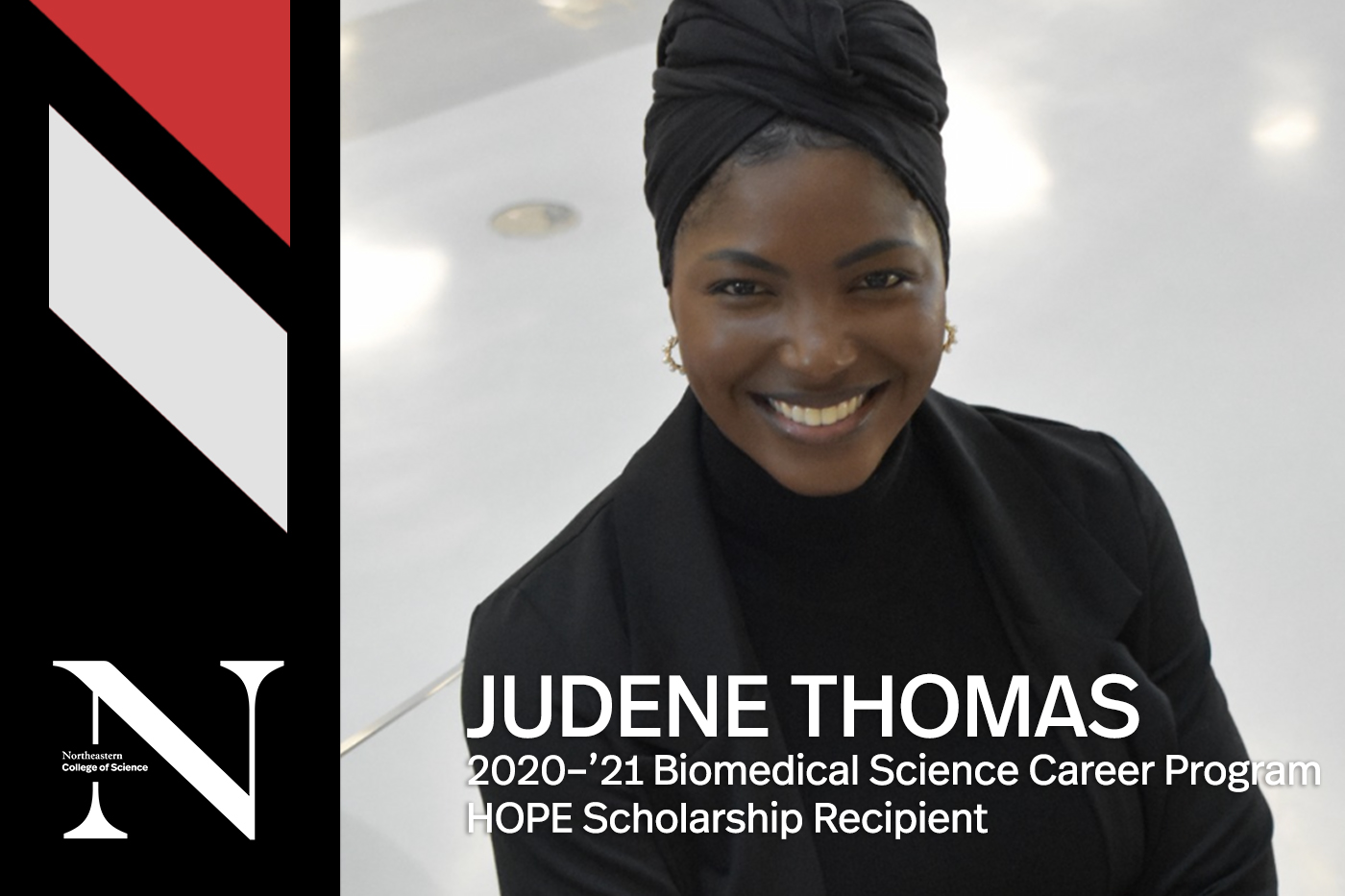
PhD Student Judene Thomas Biomedical Science Career Program HOPE Scholarship
Congratulations Judene Thomas, a second-year PhD student in the Department of Biology who has been named a recipient of the ‘20–’21 Biomedical Science Career Program HOPE Scholarship from Harvard Medical School.
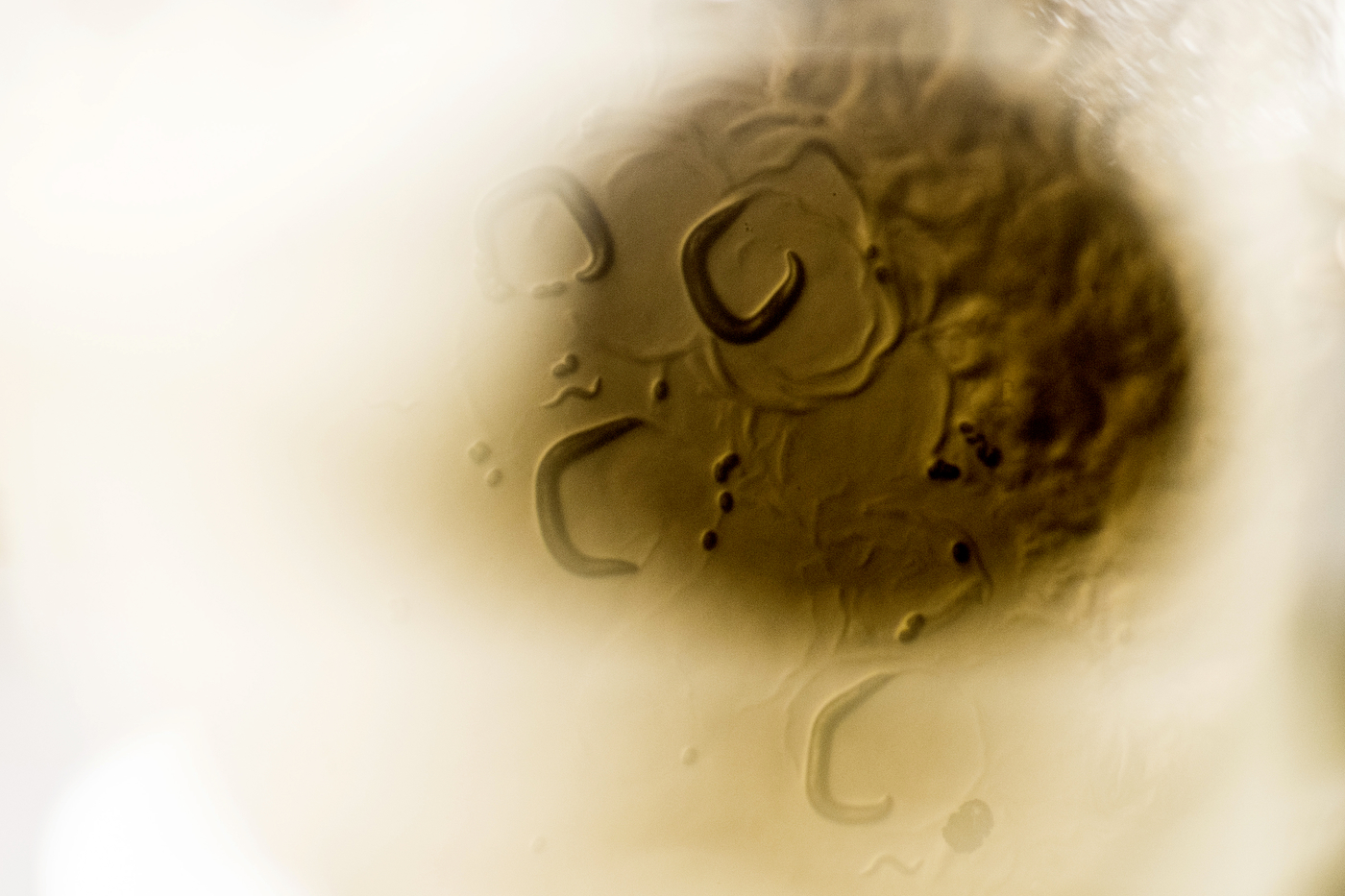
How a Freeloading Worm Might Help Us Live Healthier, Longer Lives
Caenorhabditis elegans, a transparent, microscopic worm, has evolved a way to take advantage of protection provided by nearby bacteria. This response could provide clues as to how humans coordinate our own cellular defense systems.
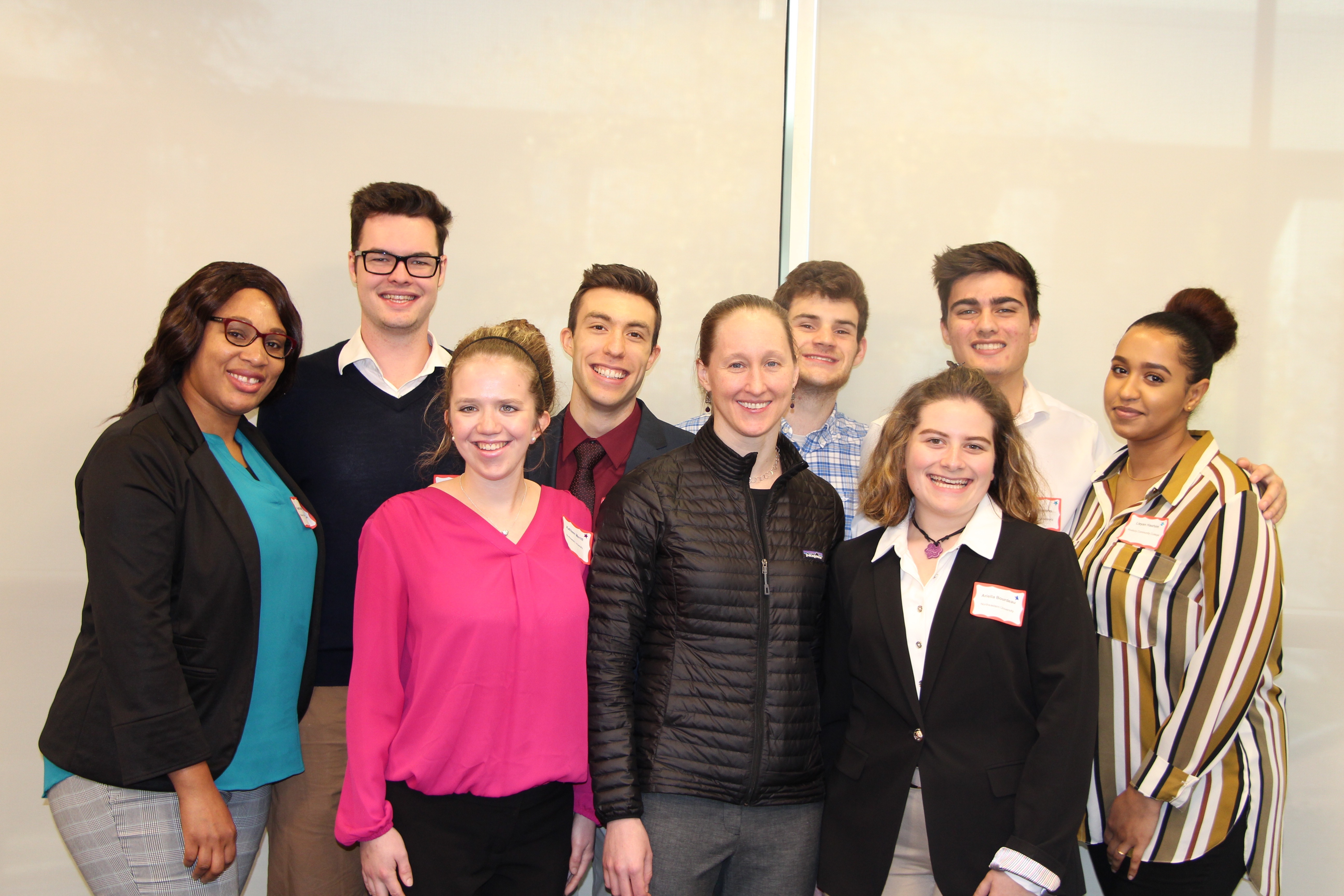
Biochemistry Students Selected for Outstanding Chapter of the Year Award
Undergraduates in NU’s American Society for Biochemistry and Molecular Biology Chapter were selected for the 2020 ‘Chapter of the Year’ honor
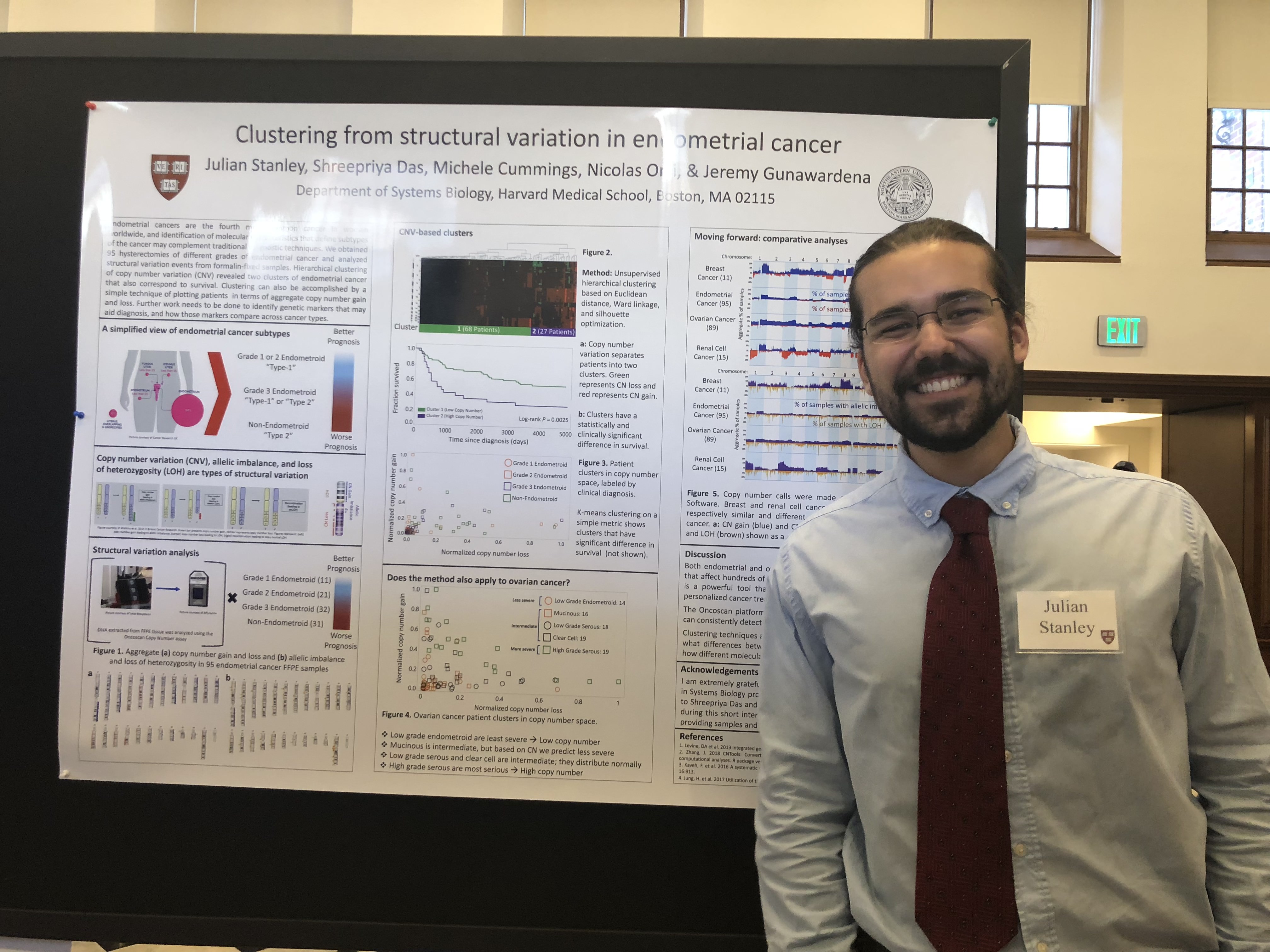
Biology and Bioinformatics With Julian Stanley
What motivated you to pursue a PlusOne master’s degree? I joined Northeastern in the biochemistry program on a 5-year, 3-co-op plan. I already had an interest in bioinformatics, but the Bioinformatics PlusOne program had not been approved yet. During my third year, I wanted to learn more technical skills, so I briefly switched to the “Biology and […]
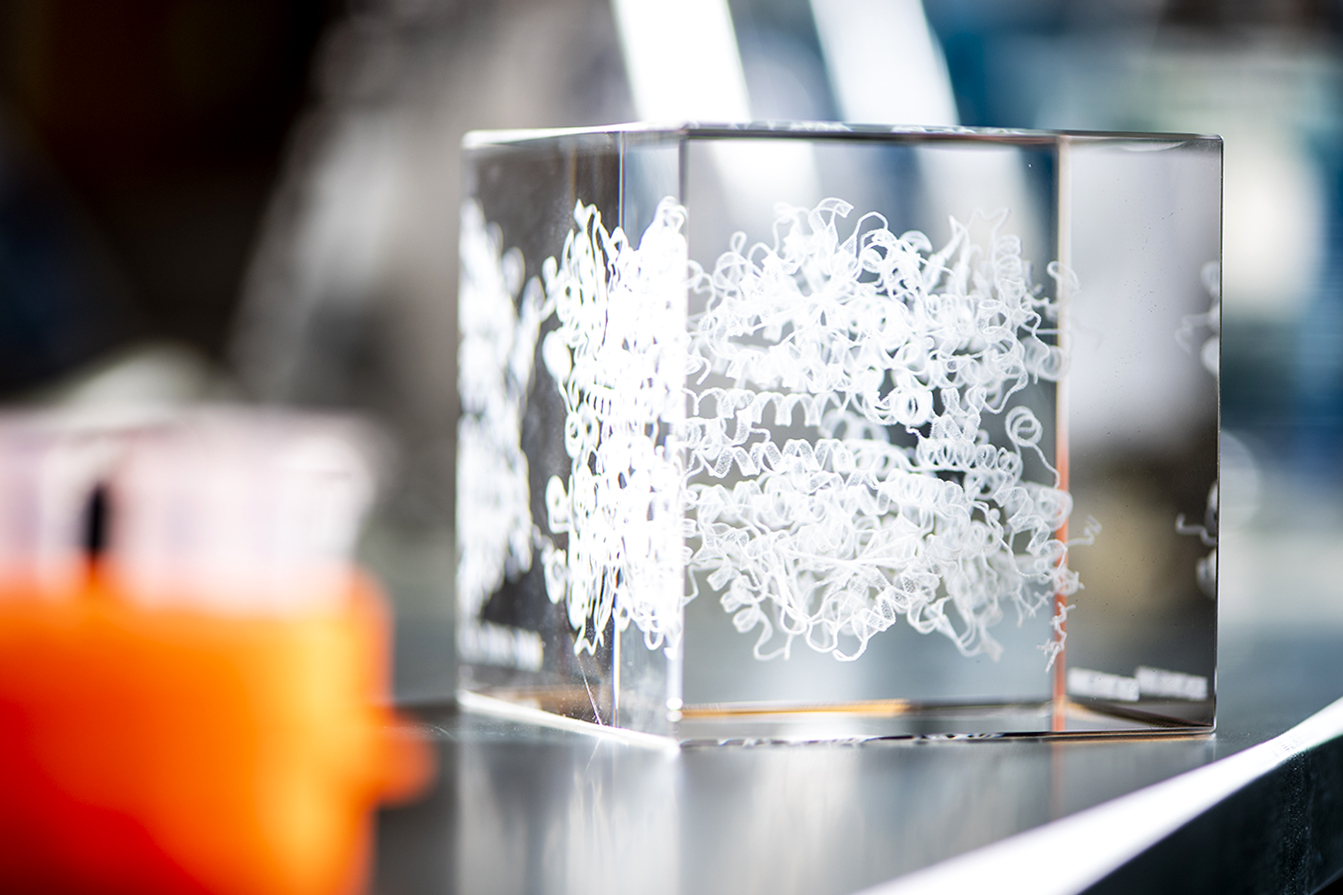
The Coronavirus Might Have Weak Spots. Machine Learning Could Help Find Them.
What makes SARS-CoV-2 so infectious? The answer is in its proteins. Mary Jo Ondrechen and Penny Beuning, professors of chemistry and chemical biology, are using machine learning to investigate these proteins and begin to understand how to slow the spread of the virus.